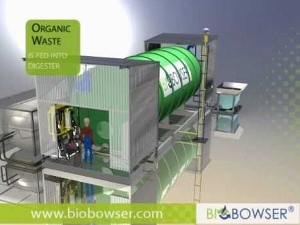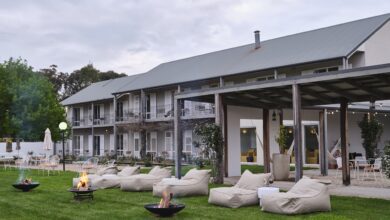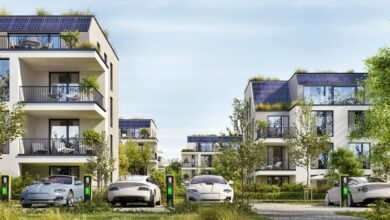
New innovation could solve resort problems
A new innovation has the potential to solve two of the major problems faced by island and remote area tourism resorts, namely disposal of biodegradable waste and generation of their own energy.
A Brisbane innovator has developed an environmentally friendly, modular system of turning organic waste such as food waste, including fats, oils and bakery, fruit, vegetables and sewage into free energy that can be used for heating, electricity or as an engine fuel.
Ron Lakin has developed the BioBowser, a small scale, affordable and practical biodigester that produces methane gas. After the gas is extracted the leftover material can be used as a nutrient-rich fertiliser, which can be used in gardens or sold. It is recommended that fats and oil waste should be mixed with dry material before being used as compost.
The BioBowser can result in significant energy cost and waste disposal savings and also has significant environmental benefit as methane is a highly destructive greenhouse gas that is rated as twenty seven times more destructive than CO².
The principal of converting waste to methane has been known for centuries. On his epic journey in the 13th century Marco Polo commented that the Chinese were tapping gas from the sewers and using it for cooking. Large intensive farms in Australia like piggeries have long been harvesting methane to use as an energy source, but these require large one-off systems that can cost millions to build even though they pay back the capital outlay in energy savings in a few years.
Ron Lakin said, “All we need to know is the quantity of waste available on a regular basis and the energy requirements, and we can tailor the BioBowser to suit the needs of the individual customer. If the amount of waste increases or more gas is needed we can put in more units as the system is modular.
“A resort with twenty cubic metres of waste a week could produce methane of the equivalent heat value of sixty kilograms of LPG which could be used for cooking, heating and lighting while a larger facility producing 5 tonne of waste a day could provide sufficient energy to power a generator to produce electricity for their complete needs.
“A small unit can cost as little as $6000, depending on requirements, such as whether the methane needs to be converted to electricity of motor fuel, while a larger BioBowser can cost over $300,000, but could save that amount in energy costs in less than four years.
“The BioBowser is ideal for many Pacific Island resorts and they do not have access to consistent affordable energy sources as many have to rely on diesel to generate electricity, which exposes them to the cost fluctuations of the international oil market.
“Our development is consistent with the ideals of UN Climate Change Fund which is designed to bring green energy and lift living standards in the Asia Pacific and Indonesian Island communities. This fund has now reached $10 billion after a recent $200 million contribution from Australia,” Mr Lakin said.







